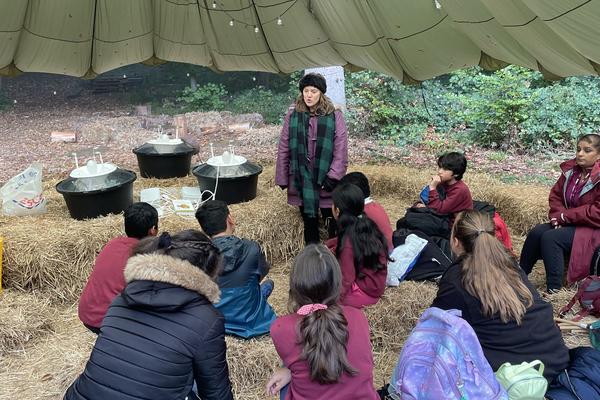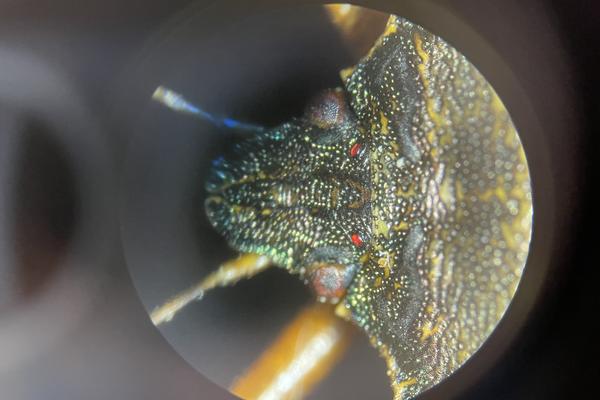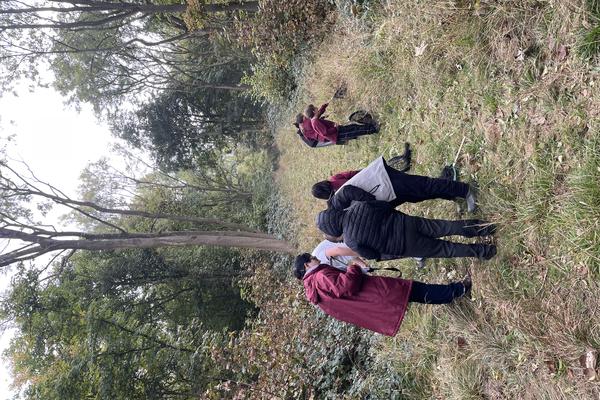BugBlitz! Public engagement in biodiversity at Wytham Woods
Read an account of a recent Oxford Darwin Tree of Life public engagement project, which is engaging primary schools with the biodiversity of the UK.
About the project from Katie Whale
The Darwin Tree of Life (DToL) project is a UK-wide initiative with the ambitious target of sequencing the DNA barcodes and full genomes of all complex life across the UK and Ireland – approximately 70,000 species of animals, plants, fungi, and protists. It is an exciting collaboration between biodiversity, genomics and analysis partners that is transforming the way scientists do biology, conservation and biotechnology. DToL is the UK’s contribution to the Earth Biogenome Project – the global effort to map the DNA of all complex life - and a collaboration between world-leading scientific institutions, led by the Wellcome Sanger Institute.
Naturally, public engagement is an integral part of the DToL ambitions. With Wytham Woods being heralded as one of the most researched pieces of woodland in the world due to its abundance of flora and fauna, it was an obvious hub for the University of Oxford’s BugBlitz public engagement project. The aims of BugBlitz are multifaceted; to inspire scientists and conservationists of the future, to imbue in children a respect and understanding of the importance of insect life, to promote connections between researchers and primary school children and to weave aspects of the primary science curriculum into an inspiring and fun learning experience.
This October, Charlotte Knight spent a day at Wytham Woods with Cutteslowe Primary School for their BugBlitz workshops. Hear what she had to say below.
About the event from Charlotte Knight
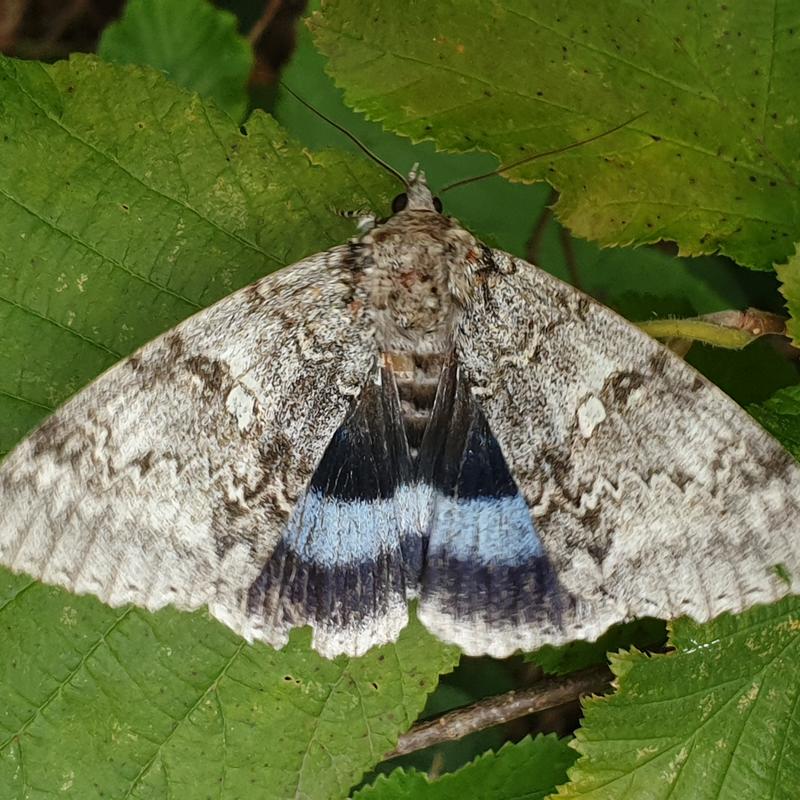
Shortly after 9 o’clock the 28-strong class of children arrived by coach, ready for a day of discovery. It was raining, but that did not dampen anybody’s spirits as the Year 5s and 6s, along with three teachers and Katie, set off to the Wytham Chalet. Here, they would spend the day learning about insects in three different sessions: a microscope session; a moth session, and a bug hunting session. BugBlitz run by Katie Whale at the Department of Biology is an incredible opportunity for primary school students to become passionate about science, insects, and nature in a hands-on, fun-filled way, as well as giving Wytham a chance to recruit some future scientists!
In Katie Whale’s microscope session, the young scientists learned about classification of insect species, with many attempted guesses at the number of individual species of insect there are in the world. Currently, we know of over 1 million insect species, but the Royal Entomological Society estimates that there may be as many as 10 million.
Within the session, children learned about the ‘Big 5’ insect orders, identifying the characteristics of each group, and learning some Latin as a bonus! It was explained that they would be able to examine several insect specimens using their microscopes with the goal of identifying to which of the ‘Big 5’ insect orders their specimens belonged. The children loved seeing their insect specimens up-close (the majority having never used a microscope before) and were able to accurately classify their insects using a dichotomous key. I was impressed with the young scientists’ maturity in understanding that the insects they were using had been killed humanely and that conversations regarding ethics in science are very important within the discipline.
In Natalie Duffus’ bug hunting session, pupils learned about adaptation, and how insects evolve to survive in their environments. Natalie discussed the use of natural camouflage which enables insects to hide from predators. They then explored the woods around the Chalet, looking at the different habitats for insects that they could find, including long grass, leaves, log piles, moss, and hay piles. It was great to see the children interacting with nature, and they all found it exciting to use the nets and microscope pots to collect the insects that they found. Pupils discovered woodlice, beetles, moths, spiders, centipedes, and parasitic wasps. The young scientists were fascinated to discover that parasitic wasps lay their eggs inside other creatures. Whilst exploring the woods, the excitement and enthusiasm amongst the group was palpable, and there were very few nerves about handling a variety of insects.
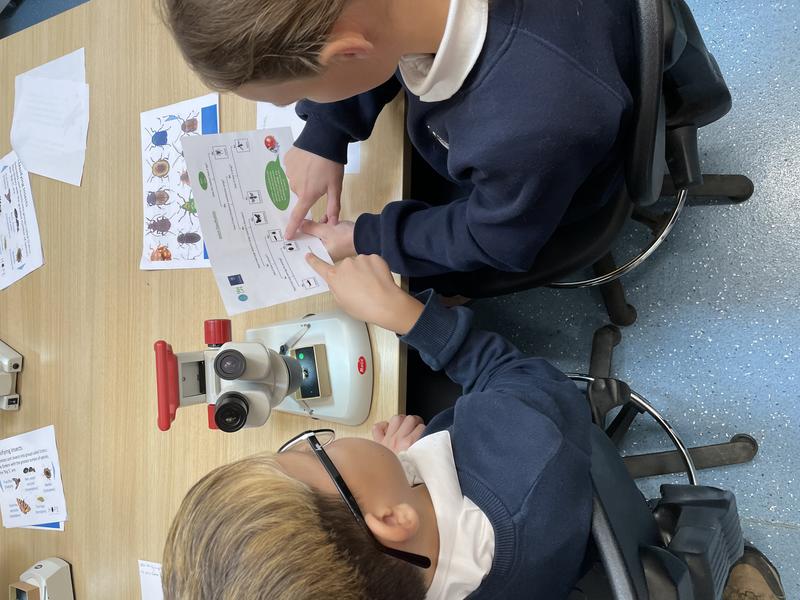
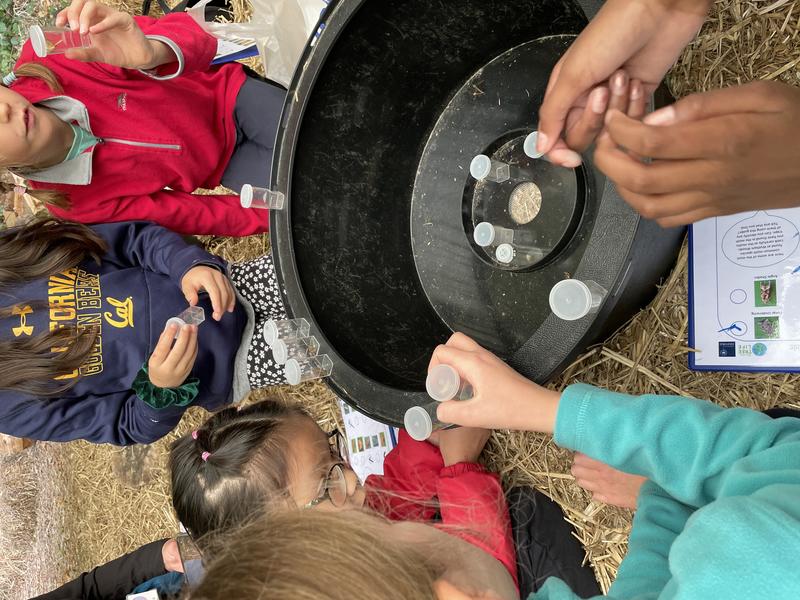
The enthusiasm and joy that was felt throughout the day continued during Liam Crowley’s moth session with demonstrations of how a moth trap works, using a bright bulb to attract the moths and a funnel to capture them. These traps had been set the night before the group arrived, so when it was time for our young scientists to have a look, they were filled with an abundance of diverse moth species. The highlight of the session was discovering that the trap had caught a Blue Underwing, a rare and beautiful moth. Pupils were given ID guides and were tasked with identifying the moth species that had been caught in the moth traps and sketching their favourite moth. Watching children handle and gently release their moths at the end of the session was a really special moment.
After the three sessions, it was clear that the day had been an unmitigated success. The children had learned a variety of new concepts and skills in a hands-on, exploratory manner. It is massively important for children to have the opportunity to learn outside of a classroom environment, and BugBlitz has shown the remarkable difference even one day can make. Children that started the day unenthusiastic or terrified of insects ended it excited to demonstrate the new skills they had learned. The teachers, too, were filled with a renewed appreciation for the importance of Forest Schools and enthusiasm to help children stay connected with nature. For the DToL Project, one of the most exciting things about BugBlitz is that the primary children who take part, finish their day more knowledgeable of and curious about the insect world around them – and the value that stems from that is immeasurable.
By Katie Whale and Charlotte Knight

